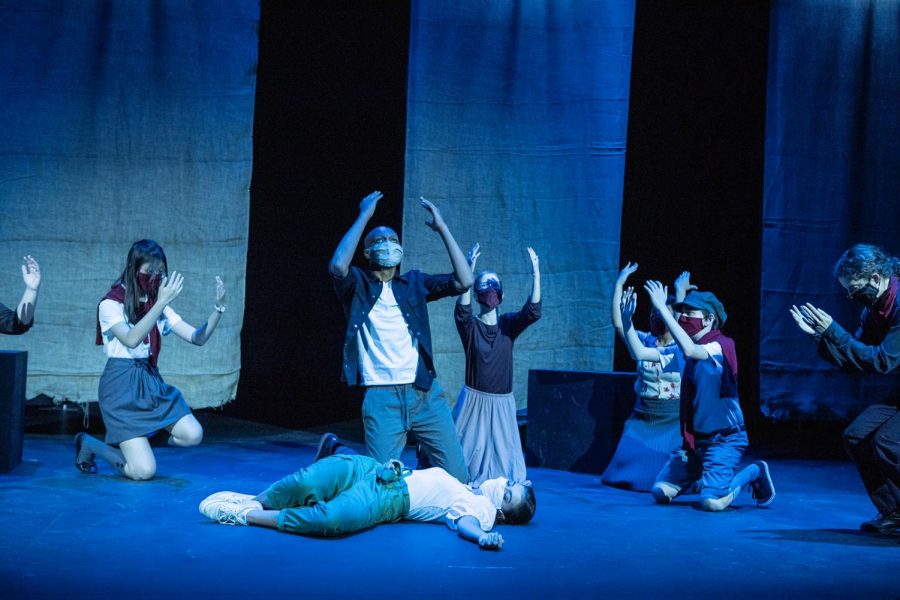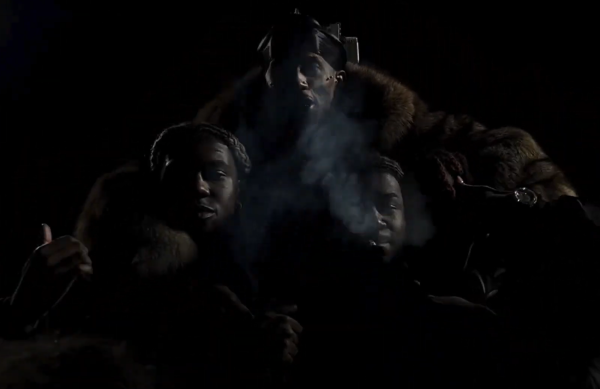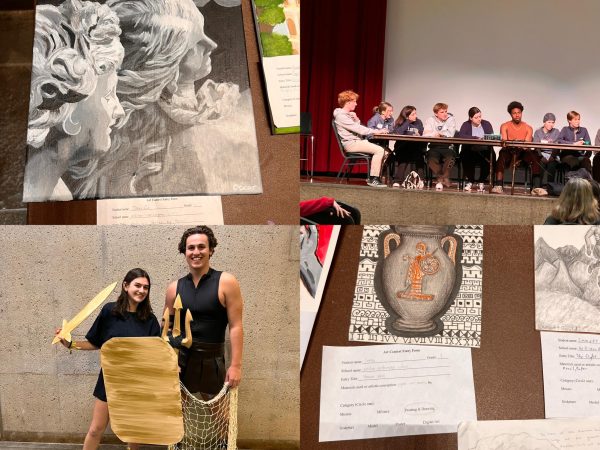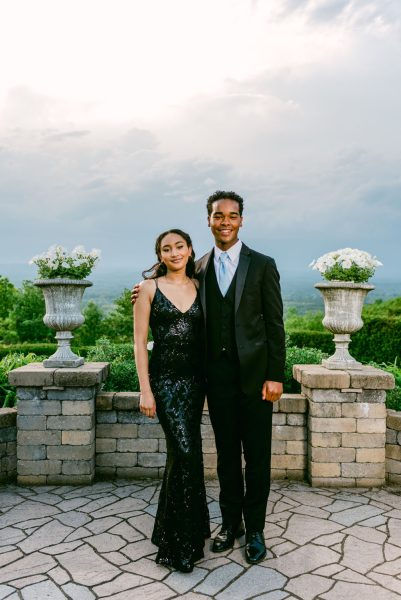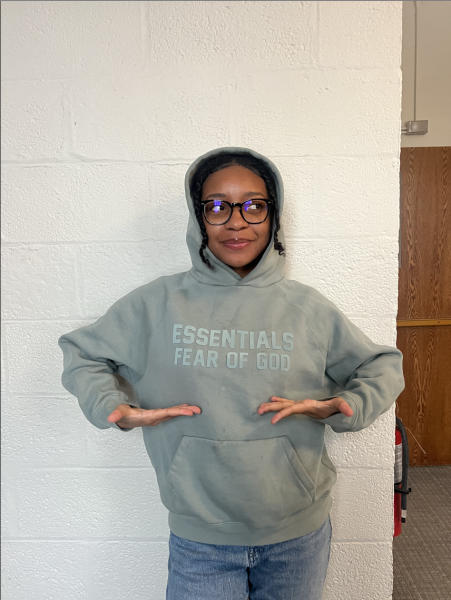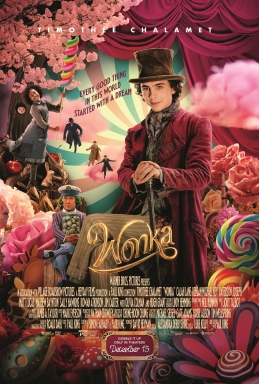Theater Department Adapts “Antigone” For New Covid World
Even with all the new difficulties that came with the Covid-19 pandemic, the Williston Theater Department was still able to put up an amazing show.
This year the play was “Antigone” directed by Emily Ditkovski, Director of the Williston Theater. She had 15 actors to work with on the show.
This year, there were many changes to the program to accommodate all of the Covid safety protocols. The actors had to work with social distancing, masks, and without being able to touch each other, props, or interact with the set.
The play had other challenges not related to the pandemic. The company had previously planned to adapt the show that had been translated. Since the show was originally written by Sophocles in 441 BCE, Ditkovski felt that it was important to make the show more attainable and relatable to the actors.
“We worked with a script that was translated by Nicholas Rudall … but we wanted to make the script more accessible, so that was an added challenge,” she said.
The show will be from Nov. 30 through Dec. 7.
Ditkovski and her company changed the show from the original and added more characters to create more roles for students, but also to make it more clear in the show why the protagonist, Antigone, was making the decisions she was.
The story of Antigone takes place after a civil war, where Eteocles and Polyneices, the sons of Oedipus, killed each other in battle. The new king, Creon, tries to punish Polyneices for his disloyalty to the country and therefore refuses to give him a proper burial. Antigone’s desire to give a proper burial to her brother causes conflict in the kingdom.
“In the original, we never see Polyneices and Eteocles, who are the brothers,” Ditkovski said. “I put them back into the story to make more characters because I had 15 actors, but also because I felt like it would make the reason behind Antigone’s choice more clear.”
Another change that was made to the show was Ditkovski wanted to put Eurydice back into the show. So Hannah Cannizzo, a senior, took over and wrote new scenes for not only this character, but for the whole show.
“Creon’s wife is in the play for about seven seconds and then she kills herself, which is sad, but because we never see her we never have a relationship with her. We put her back in as a character,” Ditkovski said. “Hannah emerged as the head writer for the show and she became instrumental in putting in all out new pages …We put in Eurydice as more arc and more of a relationship between her and Creon.”
Hannah said she found it difficult to write new parts of the show so they could be realistic to the rest of the play. In the end however, she was able to create text that flowed well with the rest of the script.
Hannah also found that because the company was adapting the script, it allowed more freedom in who they fixated on during the play.
“Being able to manipulate the plot to what we wanted to focus on, we got to pull experiences from characters not previously shown in a spotlight, ie: Eurydice, Polynices, Eteocles, etc,” Hannah said. “It was interesting how the show’s perspective changed as we added and cut things.”
Unfortunately, Antigone was not able to have an extravagant set because Theater Production and Facilities Manager, Charles Raffetto, and his crew had to strike the previous set that had been created for the 2020 spring musical, “Les Miserables,” that was never performed.
Another challenge that the company faced was rehearsal time. This year, the rehearsal process was cut shorter in order to keep everyone safe due to the pandemic. In order to reduce stress for the students who were already adjusting to a wildly different school year, the company cut rehearsal time almost in half.
“We had less rehearsal time because the afternoon program time was shortened. I felt that it was really important to keep the stakes very low,” she said. “We had 90 minutes as opposed to two-plus hours.”
However, Ditkovski found that the limitations of the virus ended up working in favor of the actors in order to build suspense and tension on stage that is already hard to make.
“There is a scene between Antigone and Ismene, they are two sisters. Antigone wants to bury her brother and Ismene is telling her not to do it,” she said. “In the scene Ismene wanted to be close to her sister, the characters want to be physically close, but he actors couldn’t, so the actors started using their inability to be close as fuel for the character.”
Ditkovski and the company were discouraged at times because of the restrictions, however they were extremely grateful that they got to do the work that they love because so many people cannot.
“There were moments where we were so sad and frustrated that we couldn’t do the things we wanted to do, but then we remembered that Broadway shut down, Off-Broadway shut down,” she said. “[We remembered] how privileged we are.”
Soon it became clear that other aspects of theater would need to be implemented to add intensity to the show. Ditkovski pointed out that senior Z Demetriou took the lead on this project and composed their own music to play during the performance.
The actors felt different performing the show this year. Senior Alexa Kerr attests to the fact that the show did not feel like a final performance, but more of a rehearsal.
Alexa also found it difficult to act under the new regulations because of how restricted the actors were on stage, but she understand that in order to keep the play safe, the company had to be realistic to the modern world and stay apart.
“So much of acting is using your body, moving around the stage, and interacting with people to make it realistic, but I guess we have to make it realistic to the times we are living in now,” she said. “The masks also make it really hard because you make facial expressions when you are acting … it all has to be with your eyes.”
Antigone also challenged student in other manners. Junior Sage Friedman took on her own new tasks during this show. Instead of acting in Antigone, Sage chose to help direct the show.
“My biggest challenge in general was that this was my first show directing! In the past, I’ve always considered myself to be an actor first and foremost, and it was hard to be on the other side of the production,” she said.
At the end of the show Sage was pleased with the work that she had done because she had wanted to direct a show for a while and finally had an opportunity. The experience taught her many lessons on how to take on a leadership role.
“It was such a rewarding experience because directing is something I’ve been interested in for a long time, and it was really exciting to be able to do it for the first time, but it was also difficult to learn the right strategies and to learn to be assertive and find the right balance of being a friend and a director to the actors,” Sage said.
Emily is a senior from Easthampton MA. She likes to play soccer, squash, and track. She also likes to participate in the theater department. In her free...



